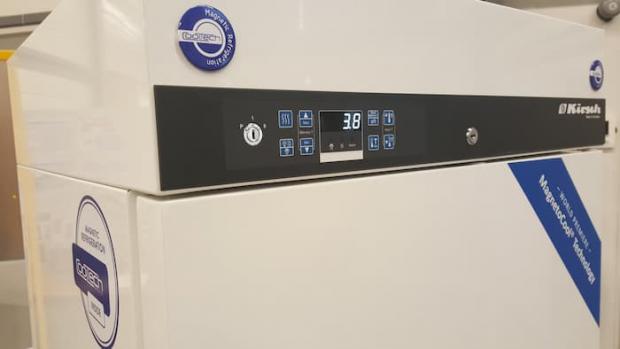
Breaking News
 2 Hours of Retro Sci-Fi Christmas Songs | Atomic-Age Christmas at a Snowy Ski Resort
2 Hours of Retro Sci-Fi Christmas Songs | Atomic-Age Christmas at a Snowy Ski Resort
 Alternative Ways to Buy Farmland
Alternative Ways to Buy Farmland
 LED lights are DEVASTATING our bodies, here's why | Redacted w Clayton Morris
LED lights are DEVASTATING our bodies, here's why | Redacted w Clayton Morris
Top Tech News
 Travel gadget promises to dry and iron your clothes – totally hands-free
Travel gadget promises to dry and iron your clothes – totally hands-free
 Perfect Aircrete, Kitchen Ingredients.
Perfect Aircrete, Kitchen Ingredients.
 Futuristic pixel-raising display lets you feel what's onscreen
Futuristic pixel-raising display lets you feel what's onscreen
 Cutting-Edge Facility Generates Pure Water and Hydrogen Fuel from Seawater for Mere Pennies
Cutting-Edge Facility Generates Pure Water and Hydrogen Fuel from Seawater for Mere Pennies
 This tiny dev board is packed with features for ambitious makers
This tiny dev board is packed with features for ambitious makers
 Scientists Discover Gel to Regrow Tooth Enamel
Scientists Discover Gel to Regrow Tooth Enamel
 Vitamin C and Dandelion Root Killing Cancer Cells -- as Former CDC Director Calls for COVID-19...
Vitamin C and Dandelion Root Killing Cancer Cells -- as Former CDC Director Calls for COVID-19...
 Galactic Brain: US firm plans space-based data centers, power grid to challenge China
Galactic Brain: US firm plans space-based data centers, power grid to challenge China
 A microbial cleanup for glyphosate just earned a patent. Here's why that matters
A microbial cleanup for glyphosate just earned a patent. Here's why that matters
 Japan Breaks Internet Speed Record with 5 Million Times Faster Data Transfer
Japan Breaks Internet Speed Record with 5 Million Times Faster Data Transfer
Magnetic fridge eliminates gases, drastically reduces energy use

The days of the rackety, energy-gobbling refrigerator may be numbered with the advent of more efficient systems that cool with the use of magnets. The idea has been around almost as long as your standard gas-compression fridge, but it hasn't yet been viable for the household and commercial markets. Now, Cooltech Applications has launched the first magnetic refrigeration system (MRS) for commercial use.
The system is based on the magnetocaloric effect, which states that the temperature of a material can be changed by exposing it to a magnetic field. As magnetocaloric materials in the system are put through a cycle of magnetization and demagnetization, a water coolant is pumped through them, transferring the heat from the interior of the fridge to the outside air.
The basic structure of the system sounds similar to that of conventional refrigerators, which use chemical refrigerants and a compressor to keep your milk from spoiling. But that system comes at a high cost: even with recent advances in energy efficiency, they still guzzle a lot of electricity, and are running 24 hours a day. Not to mention they can be quite loud, and the gases used pose an environmental hazard.

 $100 SILVER CONFIRMED?
$100 SILVER CONFIRMED?

